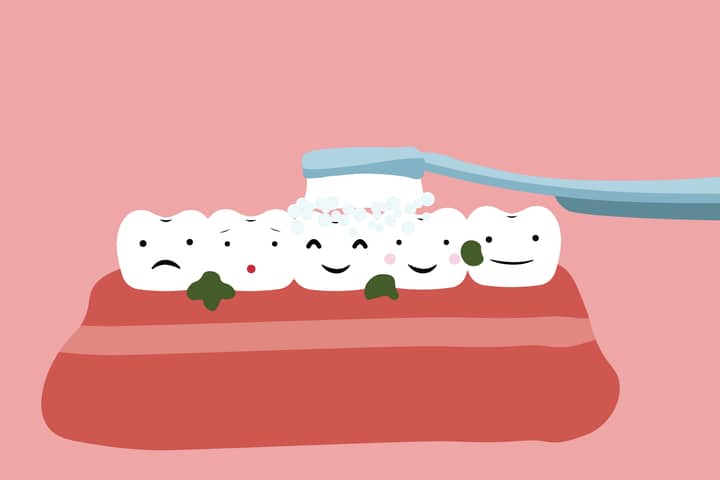

Babies and toddlers are vulnerable to a type of dental decay or caries known as milk caries or bottle caries. This is because baby teeth have thin enamel, which is less resistant to plaque acid than adult teeth. As a result, any time we eat, even healthy food, the bacteria in our mouth produce acid, which can break down our enamel into a cavity. This acid remains in our mouth for up to an hour before neutralization. So when infants are fed frequently from bottles, especially with anything that contains sugar, the repetitive plaque acid attack can be a very high decay risk.
Many people wonder whether it matters if baby teeth get decay since ‘they will fall out anyway’. However, even in baby teeth, dental decay can cause pain, infection, loss of function, a necessity for complex treatment, and unsightly cavities that can be distressing for the child and family. Also, some baby teeth don’t fall out until quite late, as in 10-12 years old. Another less known complication of baby teeth decay is that it encourages a particular bacterial balance driven towards the more dangerous decay-causing bacteria. This means that when the adult teeth erupt, they enter into an environment that is conducive to causing decay. And this will most likely stay with the child for life, making their entire dental life more difficult.
Ways to reduce the risk of milk caries are:
• Don’t let your child go to sleep while bottle feeding/nursing. The milk will sit on their teeth all night, providing ongoing feed for the plaque bacteria
• Do not put anything sweetened into the baby bottle
• Try to move to a sippy cup instead of a bottle as soon as possible. The way that the milk/juice/formula is sucked in through a bottle distributes it around the teeth instead of going straight down the throat.
• Always try to brush or wipe the teeth before the child sleeps. This is so important. Even if quick, it can help remove any food or milk that can be a source of nutrition for the bacteria.
• Begin a brushing routine as soon as teeth erupt into the mouth
• Start taking your infant to see a dentist by 18 months to establish a good routine and familiarity with your dentist and also to be able to detect and control any early problems quickly.
